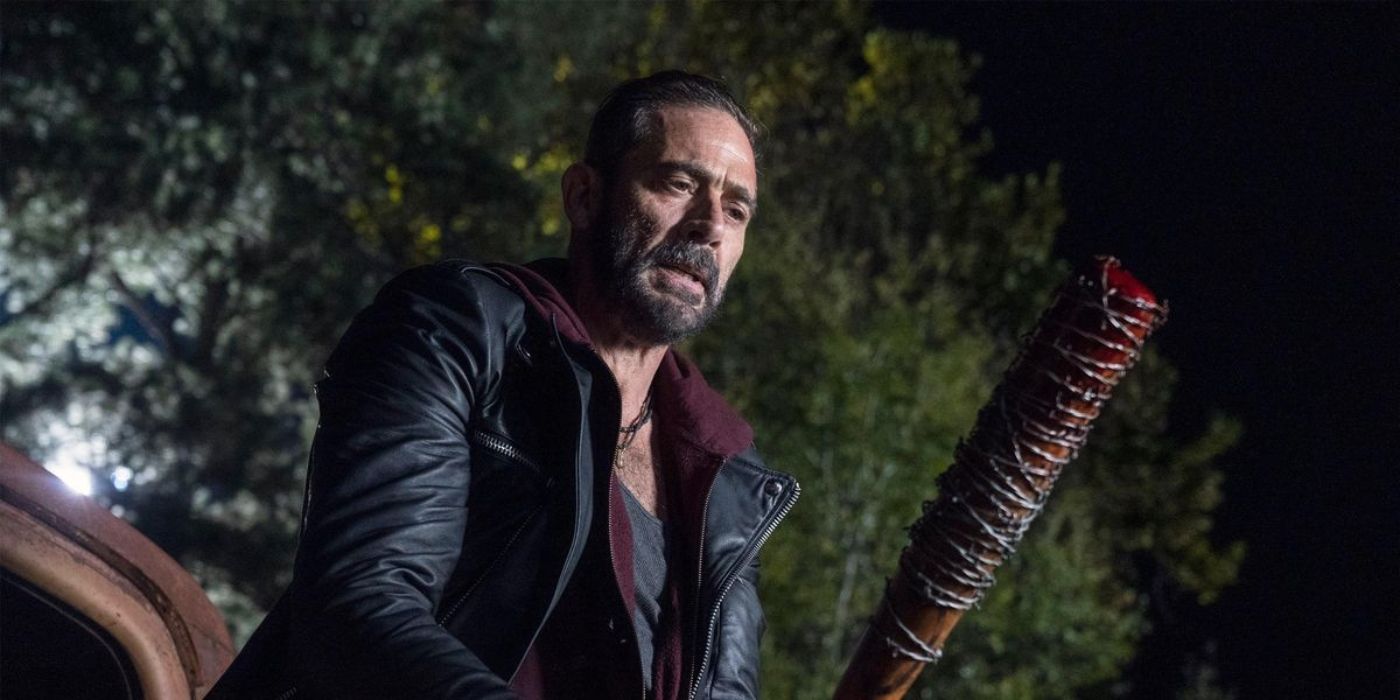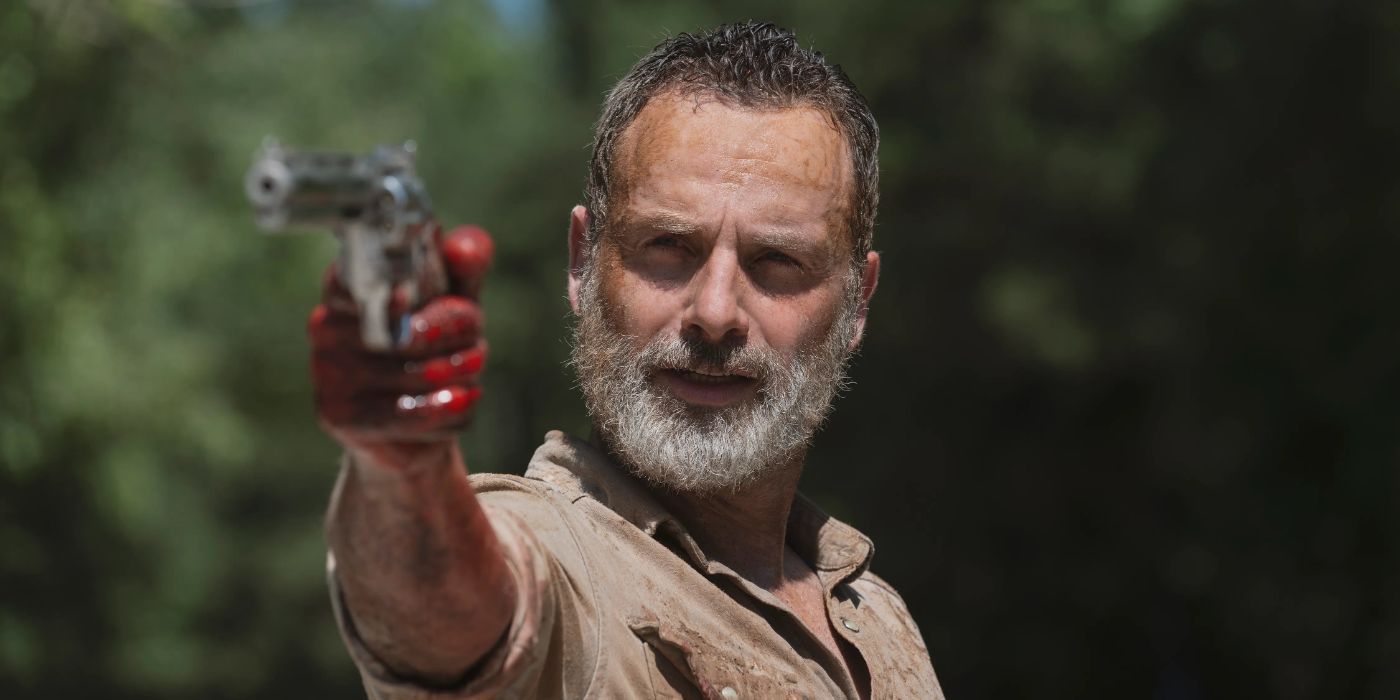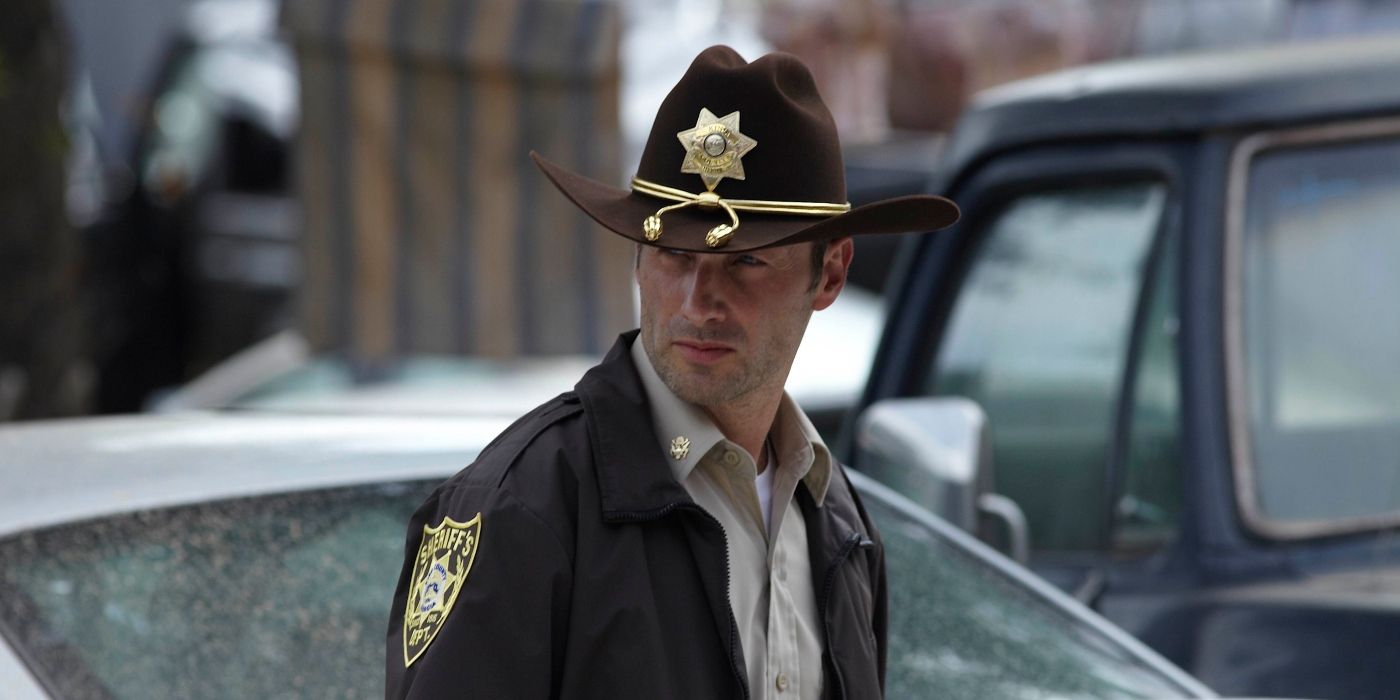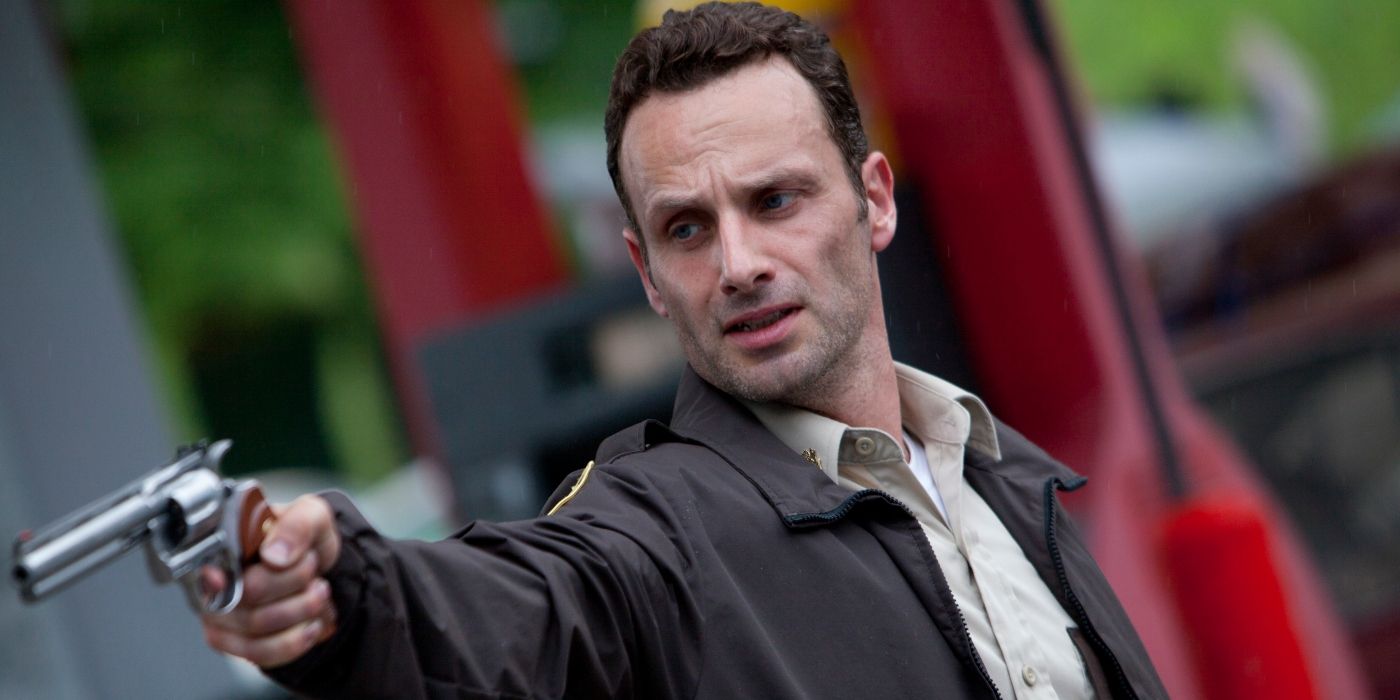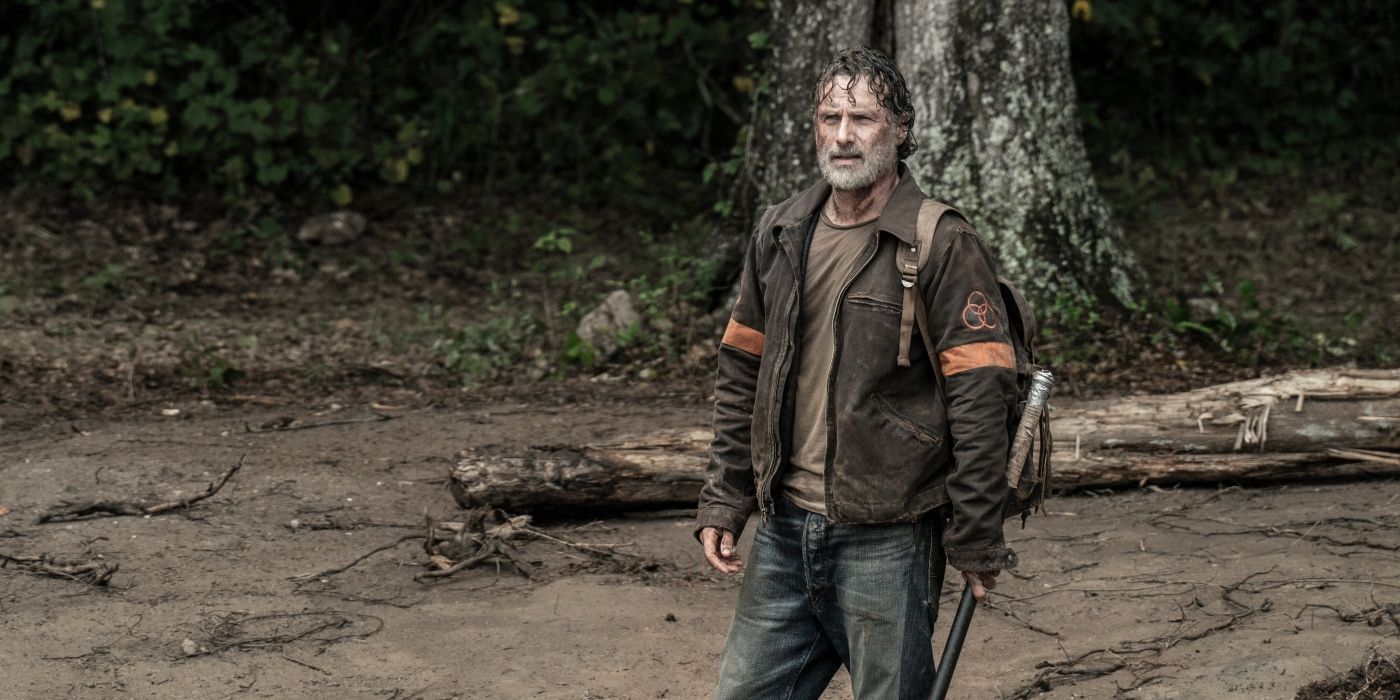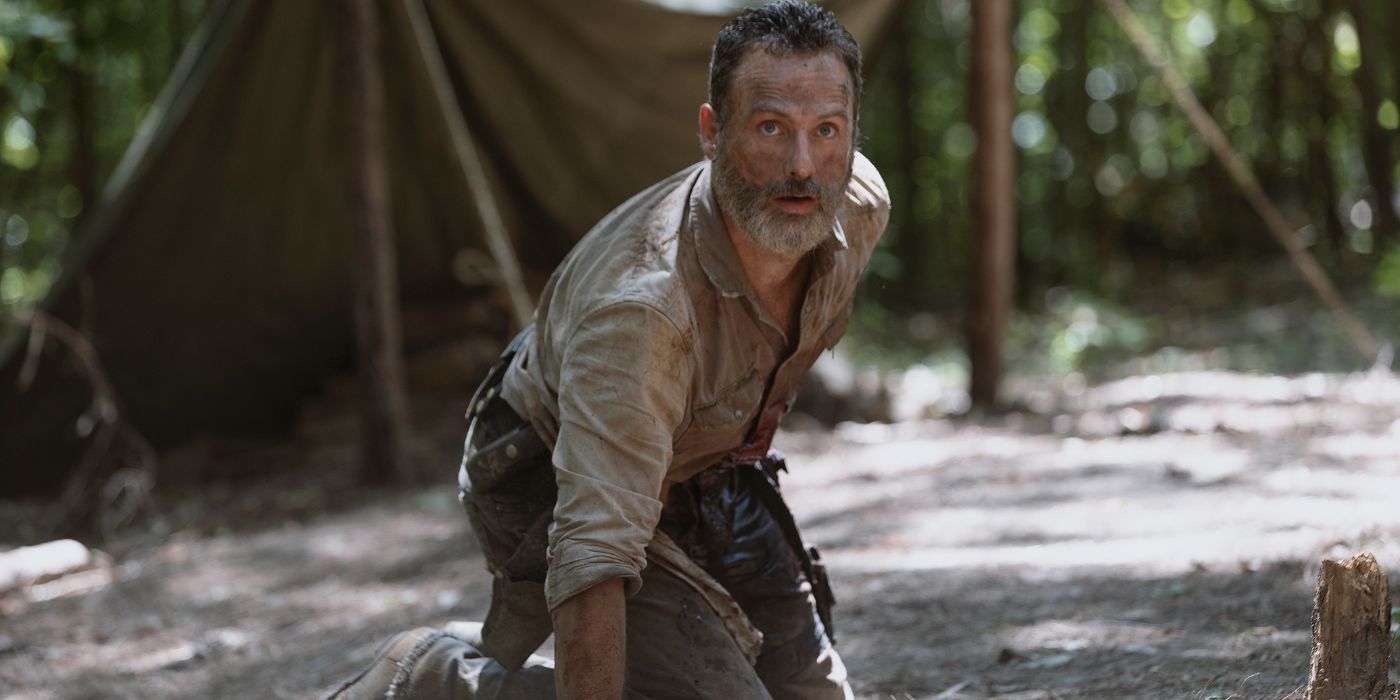Rick Grimes is back in ‘The Walking Dead: The Ones Who Live,’ though the original series was never the same after the bridge explosion.
The Walking Dead, based on Robert Kirkman‘s popular comic book series, had a mighty impressive run on AMC. The series, which follows post-apocalypse survivor Rick Grimes (Andrew Lincoln) as he wakes from a coma and tries to figure out why zombies (known as walkers) are overtaking the world he once knew, has spawned a number of spinoffs. Norman Reedus‘ fan-favorite character has ventured to France in The Walking Dead: Daryl Dixon, and unlikely teammates Negan (Jeffrey Dean Morgan) and Maggie (Lauren Cohan) take on Manhattan in The Walking Dead: Dead City. Perhaps most exciting is how our fearless leader Rick and the tough-as-nails Michonne (Danai Gurira) have returned to the franchise with The Walking Dead: The Ones Who Live.
Nothing was ever the same on The Walking Dead after Rick Grimes was whisked away in a helicopter in Season 9 following the bridge explosion. Sure, the show carried on for three more seasons, which included a six-year time jump after Rick’s departure, but what he took with him when he left the horror phenomenon was irreplaceable. The void that was left by the group’s first and most natural leader proved to be too much, and though the show did an admirable job of cobbling together pieces from a handful of supporting cast members to cover for the loss, no one was ever able to rise to the level of Lincoln’s turn as Grimes.
‘The Walking Dead’s Rick Grimes Commanded Respect From the Beginning
Rick Grimes was the glue that held the group together. Ever since the pilot, when he wokr up from a coma to a world filled with walkers, he immediately showed a natural gravitas and strength that the show would rely on for many years. In a world turned upside down, he was the steadying factor whenever the group faced long odds. He proved his merit early on when Shane Walsh (Jon Bernthal) challenged Rick for the mantle of the alpha dog. Rick’s even-keeled and level-headed response to adversity is what separates him from Shane, and the audience knew it right away. His restrained temperament would ultimately earn him the respect and support of the rest of the group as they struggled to find their footing in the wake of the end of the world as they knew it. After Rick’s departure, factions immediately started to form and the solidarity waned.
